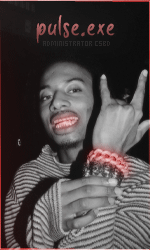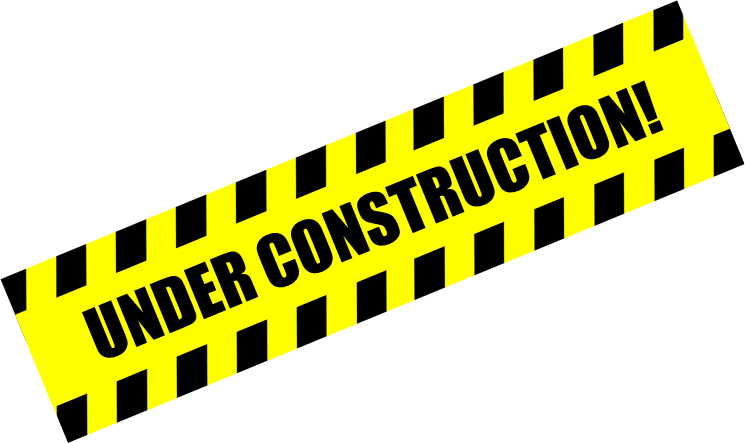One of the most remarkable things about this Resident Evil 2 remake is that it makes zombies—the slow, shambling, groaning kind—exciting again. The undead in this game are incredible, horrible things: shuffling lumps of bloody meat who batter down doors, tumble through broken windows, and lunge hungrily from the shadows. They're physical and clumsy and an absolute joy to kill—if you have the ammunition to spare.
Shoot a leg off and they keep coming, dragging themselves along the floor, reaching at you with pale, clawing hands. Turn a corner, and as your flashlight beam catches their glassy white eyes they screech and trudge towards you, arms outstretched, jaws slung with glistening blood. They don't sprint or explode or sprout thrashing parasites like they do in newer Resident Evil games. They just moan and lurch and grab, and there's something enjoyably back-to-basics about that—a feeling that echoes through every claustrophobic hallway of this confident remake.
After the subversive, rule-breaking Resident Evil 7, with its grimy Southern Gothic aesthetic and intimate first-person horror, Resident Evil 2 is a return to a more familiar style of game. It's a remake, but it's never a slave to the source material, adding or cleverly remixing enough elements to make it feel brand new. You can still play as two characters—Leon S. Kennedy and Claire Redfield—and a few fan favourite bosses and locations have been recreated. But even moments of fan service are given some kind of interesting twist or fresh angle, which is, honestly, not what I expected from this remake at all.
The grand, imposing Raccoon City Police Department was always a great setting, but the shift to three dimensions makes it magnificent. While the original game relied on fixed camera angles and the distant moan of unseen zombies to build fear, the remake uses light, shadow, and layout to get under your skin. Some parts of the station have been plunged into darkness, forcing you to pick through the gloom with a flashlight. The building itself is a labyrinth of blind corners, shadowy recesses, and warren-like corridors, creating a constant feeling of apprehension and unease.
The station is essentially a giant box of puzzles, and an absence of objective markers, beyond a few marked points of interest, means you have to draft a mental map as you play. At first most of the building is locked up tight, or obstacles such as the burning wreck of a crashed helicopter block the way forward. But as you explore you find items that let you delve deeper, and slowly but surely the maze of halls, offices, atriums, and stairwells starts to feel familiar. I also like how dead zombies stay put, even after reloading a save, as I'd often use their corpses as a kind of macabre breadcrumb trail.
But navigating the station and deciphering its many riddles and puzzles is only half the battle. The zombies, as much fun as they are to scrap with, can take a hell of a beating. Their health seems to be randomised, meaning that you can empty ten bullets into one and it'll keep crawling after you, while another will be put down permanently by just a few shots. And whichever dice roll governs the chance of an explosive headshot is weirdly stingy. This makes the zombies unpredictable and tenacious, as zombies should rightly be. But it also teaches you a hard lesson that every bullet in this remake is precious, and if you can slip past an enemy rather than killing it, you probably should.
Then there's the Tyrant, a hulking great mutant in a trench coat (and a hat, which you can shoot off) for whom gunfire is little more than a minor inconvenience. At certain points in the game this merciless, invincible killing machine will hunt you around the station with grim persistence. You can track his movements by listening to the heavy thud of his footsteps, but other than blinding him with a flashbang, evasion is your only real option. He's also attracted to gunfire, which adds further weight to decisions involving fighting regular zombies. Do you waste ammo and risk alerting the Tyrant?
The way he walks slowly towards you, unflinching and emotionless, is genuinely unsettling—especially when he suddenly appears at the end of a long corridor. And he's always lurking near items you need to progress, which is brilliantly cruel. But I would have liked more ways to interact with him, because eventually these run-ins start to feel rather one-note, and the fear can mutate into frustration. Even the ability to throw something to distract him would have made these sections more interesting, but as it stands the concept feels underdeveloped.
Similar to Resident Evil 4, the difficulty of the game adapts as you play. How it actually works is obscured, but whatever's going on behind the scenes, the balancing is quite masterful. For the entire nine hours it took me to finish my first run as Leon, I felt constantly on the verge of catastrophic failure. I always had a handful of bullets, little or no health items, and I kept wondering if I'd backed myself into an inescapable rut. But I'd always scrape through, and it's hugely impressive how the game managed to maintain this knife-edge tension from start to finish.
The good news is that if you sacrifice ammo to clear an area, it'll stay clear. More zombies can spill through open windows, but you can block these up with wooden boards. This gives you some breathing room, especially when you're being chased by the Tyrant. The last thing you need is zombies clawing at you when you're trying to run to safety. Counter-weapons can also tip the balance. If you have a grenade or a combat knife in your inventory and something grabs you while you're low on health, you'll avoid death: stabbing them with the blade or shoving a grenade in their mouth. So the game isn't completely relentless in its attempts to sabotage you, but for every inch it gives you, it rudely snatches one right back.
It's never really that scary, though. Unnerving, tense, and sometimes overwhelmingly stressful, sure, but there's nothing particularly understated or psychological about it. But that was always Resident Evil's thing: zombie dogs crashing loudly through windows rather than the psycho-sexual mind-beasts of Silent Hill. Still, Resident Evil 7 had some effectively surreal, eerie moments, and I would have liked some of that to make its way into this remake. If you can't deal with the stress, there is an 'assisted' difficulty option that adds generous auto-aim and makes a small amount of health regenerate automatically. But, honestly, the game just isn't very exciting when your item box is heaving with an abundance of spare shotgun shells and healing herbs.
When you finish your first playthrough, you've really only seen half of what the game has to offer. The second uses the same locations and has many of the same story beats, but the puzzles are different, enemy types and locations are mixed up, and you take a different route through each of the game's three major locations. What I love about this so-called 'B' scenario is how the game uses your knowledge of the setting against you. Walking into the RPD main hall as Claire, a protected haven for Leon, and seeing zombies in there was a fun subversion. It's just a shame the intensity of the Tyrant is amped up to such a preposterous degree. He's constantly looming over your shoulder, which I ultimately found a bit annoying.
As a longtime fan of the original Resident Evil 2, I enjoyed the remake's many self-aware attempts to clarify some of the more abstract stuff in the game—such as why a sewer system is powered by plugs shaped like chess pieces, or why a police station would inexplicably theme its keys and locks around playing card suits. There are other cute references to the old games to find as well, but they're pretty subtle and don't feel forced. This could have easily been a game targeted squarely at diehard fans, but if this is your first Resident Evil you could get your head around everything in minutes—another example of how refreshingly simple the remake is. The story is really no more complicated than: zombies everywhere, get to safety. Which makes even the relatively pared-down narrative of Resident Evil 7 seem overly complex.
Some of the voice acting and writing are pretty bad, and not 'fun bad' like in the old PlayStation games: just regular bad. The second act, which takes place in a dingy sewer, slows the action down to a crawl. And I was glad when the section where you play as Ada Wong, solving hacking puzzles while the Tyrant stalks you, was over. But otherwise, this is pretty much the ultimate refinement of the classic Resident Evil formula—but with the added intensity of RE4's slick, dynamic over-the-shoulder combat. The result is a game that is comfortably among the best in the series, and a thrilling survival horror experience in its own right. It's not as surprising as RE7, but as an evolution, and a celebration, of vintage Resident Evil, you couldn't ask for much more.






















